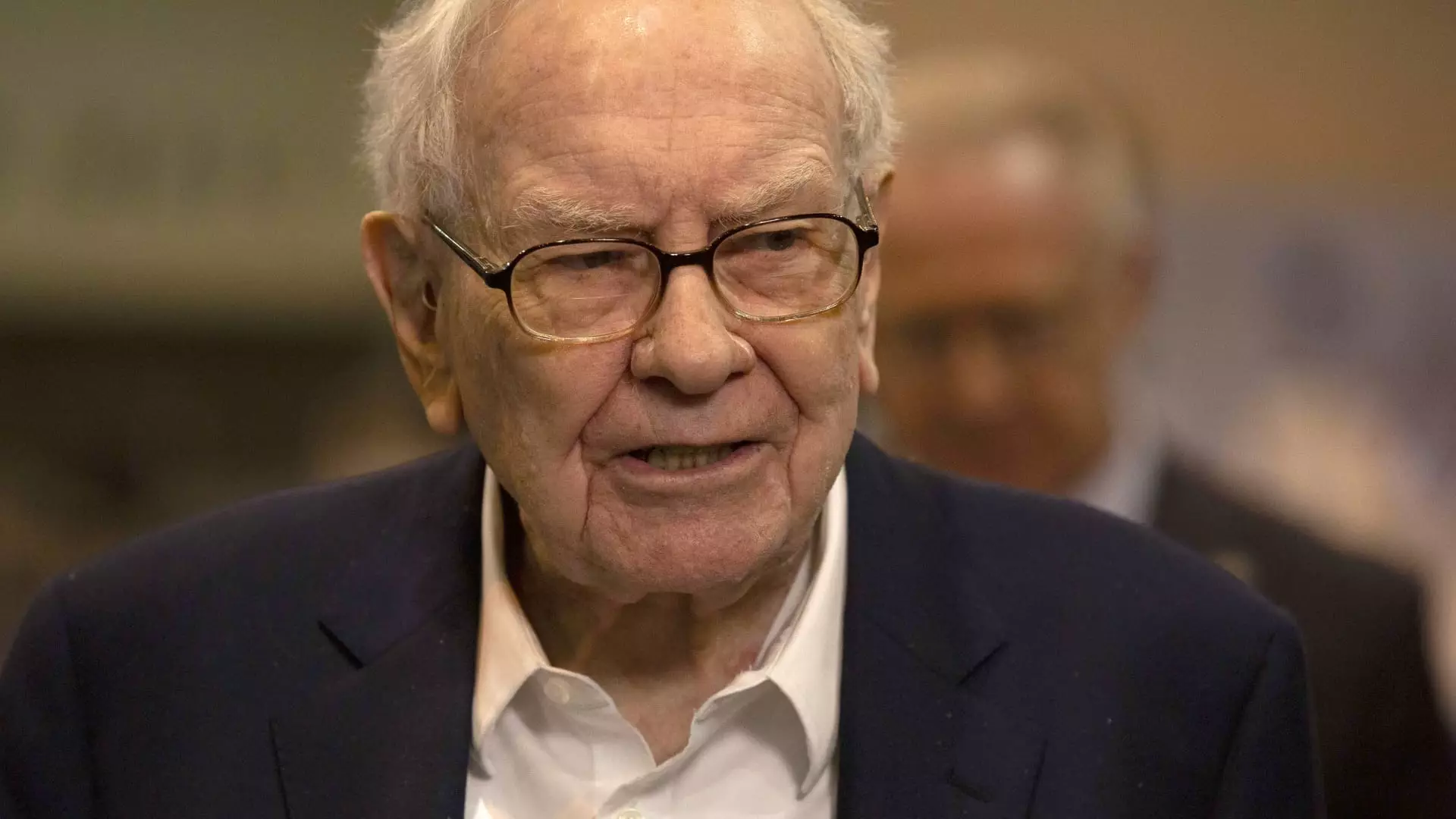Berkshire Hathaway, led by the legendary investor Warren Buffett, finds itself in an enviable position, boasting a cash reserve that has soared to an extraordinary $325.2 billion by the close of the third quarter. This impressive figure, reflecting a significant increase from $276.9 billion the previous quarter, showcases Buffett’s cautious yet strategic approach to managing the conglomerate’s massive assets. With a track record of prudent investments and sales, Buffett’s decisions during this period offer insight into both market behavior and future investment strategies.
In a notable shift, Berkshire Hathaway has actively divested select positions, including substantial cuts to its stakes in Apple and Bank of America. The conglomerate reduced its Apple investment by approximately 25%, marking the fourth consecutive quarter of diminishing holdings in this technology giant. Such moves reflect a philosophical approach towards risk management and diversification. By continuously rebalancing its portfolio, Berkshire reinforces its long-term strategy of mitigating risks associated with concentrated investments, particularly in high-flying tech stocks that have experienced significant volatility.
Furthermore, Berkshire has capitalized on its longstanding relationship with Bank of America, recording over $10 billion in gains through the sale of its shares. This indicates not only a tactical move to unlock cash by selling high but also signifies a keen sense of market timing—an essential component of Buffett’s investment prowess.
Cautious Cash Accumulation: Why Not Reinvest?
Despite the burgeoning cash reserves, Buffett opted not to repurchase any Berkshire shares during the third quarter. Historically, share repurchase activity has been a tool for Buffett to signal his confidence in the underlying value of his company. However, the current climate of rising market valuations has likely tempered his motivation to buy back shares. Only $345 million worth of stock was repurchased in the second quarter, a stark contrast to the $2 billion repurchases made in previous quarters. This reflective decision can be interpreted as a sign of prudent caution amidst buoyant market conditions, particularly as Berkshire Hathaway’s Class A shares have appreciated by 25% year-to-date, eclipsing the S&P 500’s 20.1% increase.
Having an extensive cash reserve provides Berkshire with strategic flexibility. In periods of market uncertainty or downturns, this liquid capital can allow the conglomerate to swiftly acquire undervalued assets with great potential for return. This ability to act decisively in times of market duress reinforces Berkshire’s competitive edge over other investment firms.
Buffett’s cautious approach comes against a backdrop of mixed economic signals. Following a period of stock market growth driven by optimism surrounding economic stability and declining inflation, some investors are beginning to worry about the implications of persistent inflation and rising interest rates. The 10-year Treasury yield, which recently surpassed 4%, adds complexity to the financial landscape. Buffett’s actions suggest he is acutely aware of these dynamics, potentially hinting that he anticipates a more volatile market ahead.
Moreover, concerns are growing regarding the federal fiscal deficit and the reluctance of political leaders to take decisive measures to address it. These macroeconomic challenges could necessitate strategic adjustments to investment strategies across the board, something Buffett, with his deep understanding of long-term market trends, has skillfully navigated throughout his illustrious career.
Warren Buffett’s leadership at Berkshire Hathaway embodies the balancing act of aggression and caution. The company’s substantial cash reserves position it favorably to navigate potential market downturns while allowing for tactical investments in future growth opportunities. As Buffett continues to make calculated decisions regarding stock sales and repurchase strategies, investors and analysts alike will be watching closely to see how Berkshire Hathaway maneuvers through the complexities of the current economic landscape. Ultimately, this combination of financial prudence and strategic foresight underscores Buffett’s enduring legacy as a successful investor in an ever-changing financial universe.


Leave a Reply